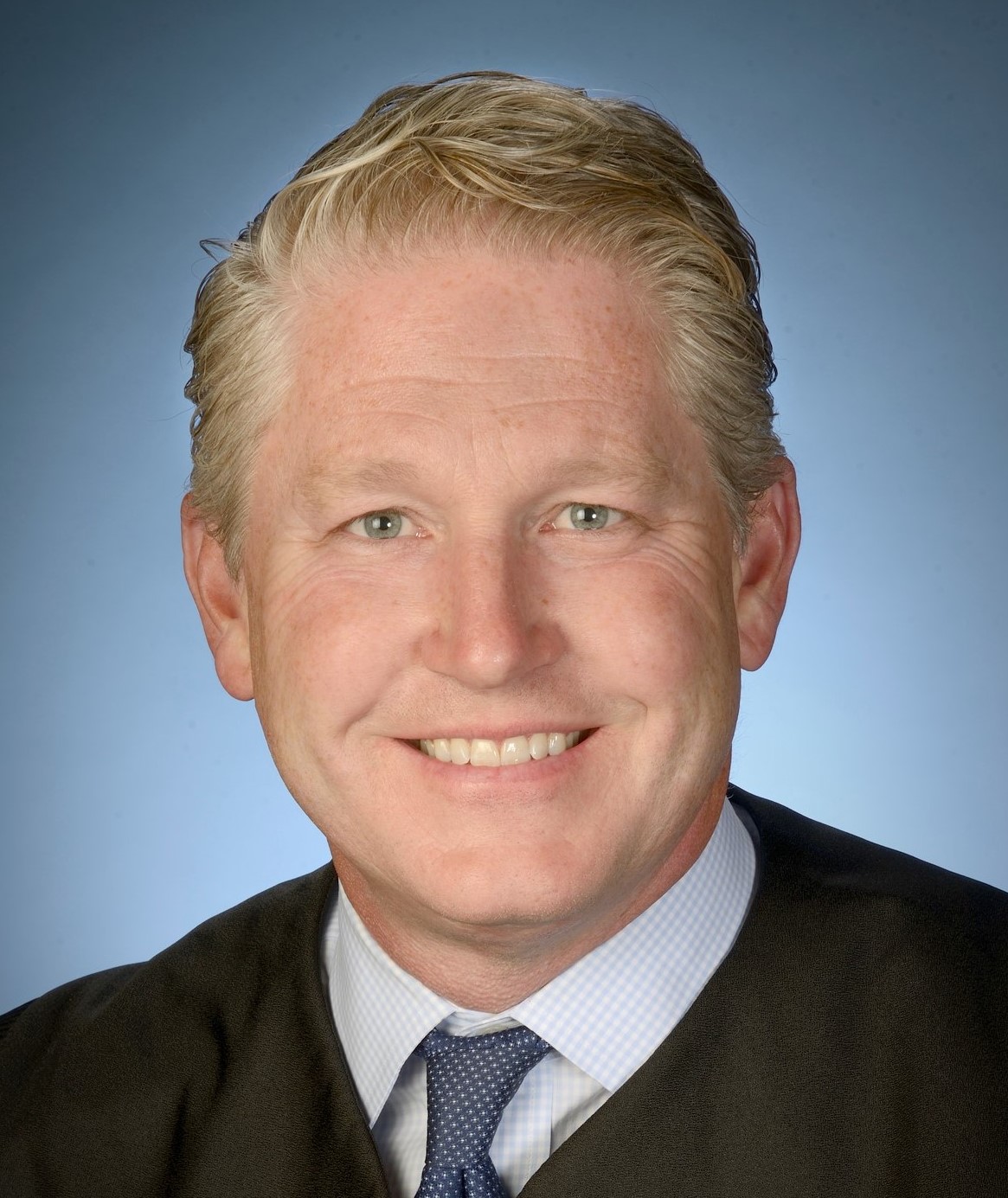DOJ has availed itself of the opportunity to provide a response to Mike Flynn’s petition for a write of mandamus at the DC Circuit.
As I’ll show, I think the reason they did so was to make yet another argument that Mike Flynn can lie wherever and about whatever, but those lies may never be deemed material to a proceeding, and therefore he must go scot-free. Along the way, however, DOJ argues that merely appointing an amicus is a totally unprecedented act. And to get there, DOJ twice argues against DOJ.
DOJ says only DOJ can determine if Flynn can lie and lie and lie
I’ve long believed that Sullivan’s order that amicus John Gleeson consider whether Flynn should be held in contempt for perjury made Flynn’s challenge more airtight. Indeed, the DC Circuit didn’t even include that among the things it asked to be briefed. Nevertheless, Sullivan included it, mostly to point out that even if the Circuit resolved the motion to dismiss, the question of whether Flynn should be held in contempt remains. Sullivan argues along the way that contempt is part of the court’s inherent authority.
Regardless how this Court resolves the Rule 48 issue, questions remain whether Mr. Flynn should be subject to any sanction pursuant to statute, the Federal Rules, and federal courts’ inherent authority to discipline those who fail to tell the truth under oath and obstruct justice in the courtroom. See 18 U.S.C. §§ 401–402; Fed. R. Crim. P. 42; Chambers v. NASCO, Inc., 501 U.S. 32, 41–44 (1991) (upholding court’s inherent authority to punish “acts which degrade the judicial system, including … misleading and lying to the Court” (quotations omitted)). This factbound inquiry involves well-established Article III powers, and the district court should be permitted to address it in the first instance.
The contempt power is “settled law” that “is essential to the administration of justice.” Young v. U.S. ex rel. Vuitton et Fils S.A., 481 U.S. 787, 795 (1987). It springs from the court’s Article III responsibility to protect its essential functions, including preserving the integrity of courts and the truthseeking process. See Int’l Union, United Mine Workers of Am. v. Bagwell, 512 U.S. 821, 831 (1994). Under this inherent power, “a court may issue orders, punish for contempt, vacate judgments obtained by fraud, conduct investigations as necessary to exercise the power, bar persons from the courtroom, assess attorney’s fees, and dismiss actions.” United States v. Shaffer Equip. Co., 11 F.3d 450, 461 (4th Cir. 1993).
To be clear, a contempt finding or sanction against Mr. Flynn may prove unwarranted. If the representations in his January 2020 declaration are true, they present attenuating circumstances for his prior, contrary statements. But the nature and extent of Mr. Flynn’s reversals under oath—from whether he lied to the government in January and March 2017, to whether he was coerced into pleading guilty, misled by his former attorneys, or improperly dissuaded from withdrawing his guilty plea in 2018 when Judge Sullivan offered that option—raise questions that any judge should take seriously. They thus provide a basis for invoking the district court’s authority to “conduct investigations as necessary.” Id.7
7 Contrary to Mr. Flynn’s suggestion (Pet. 11–17), Judge Sullivan’s appointment of an amicus to brief the contempt power is appropriate. Because contempt implicates core Article III powers, “Courts cannot be at the mercy of another Branch in deciding whether [contempt] proceedings should be initiated.” Young, 481 U.S. at 796. That is why the Federal Rules explicitly authorize the appointment of a special prosecutor to investigate contempt. See id.; see also Fed. R. Crim. P. 42(a)(2). Judge Sullivan’s amicus order is more restrained: It does not appoint Judge Gleeson to prosecute any contempt charge, but merely to address whether initiating a contempt proceeding here would be appropriate, and gives Mr. Flynn the last word on the question
The government must have anticipated this, because it argues at length that Flynn’s lies didn’t obstruct anything, without ever explaining why not. Along the way, they bizarrely argue there’s no evidence of he lied out of contempt for the court, suggesting that this happens all the time.
Petitioner also cannot be prosecuted for contempt because there is no evidence of “contumacious intent.” Brown, 454 F.2d at 1007. Even assuming that petitioner had the intent to commit perjury, that would not establish that he had the “inten[t] to obstruct the administration of justice.” Sealed Case, 627 F.3d at 1238. There is no indication that petitioner pleaded guilty and then moved to withdraw his plea as “part of some greater design to interfere with judicial proceedings.” Dunnigan, 507 U.S. at 93. Rather, the record shows that petitioner—like other defendants who enter pleas they later seek to withdraw— pleaded guilty with the intent to resolve the allegations against him on the best terms he thought possible at the time. Doc. 160-23, at 8-9. Our adversarial system treats plea colloquies and later motions to withdraw as an accepted part of normal judicial proceedings. Fed. R. Crim. P. 11(b), (d). An intent to acquiesce in the prosecution’s charges, even falsely, is not an intent to interfere with judicial proceedings themselves for purposes of contempt under Section 401(1).
DOJ then argues that only DOJ could prosecute Flynn for perjury.
I have zero doubt that Neomi Rao will adopt this view, for present purposes, because she has never met a ridiculous argument she didn’t like. But it would be shameful for any self-respecting judge to do so, as it effectively eviscerates judicial authority.
Appointing an amicus is unprecedented
DOJ then argues that Judge Sullivan did something unprecedented, which is what they use to justify issuing a writ.
III. A Writ Of Mandamus Is Appropriate And Necessary Relief In Light Of The District Court’s Unprecedented Order
Several pages later, after laying out the very high bar for a writ of mandamus, the government describes what Sullivan has done: appoint an amicus.
For the same reasons that the mandamus factors were met in Fokker and In re United States, those factors are met here. The only distinction between the cases is that, in Fokker and In re United States, the district court had entered an order denying the motion, while here the district court has entered an order providing for further proceedings and contemplating additional, court-initiated criminal charges.
The government is basically arguing that even appointing an amicus amounts to deciding against Flynn. Nowhere does the government claim that Flynn would be injured by this amicus, and Flynn’s only claim to injury is the delay (he himself is responsible for over a year of delay on this case).
Billy Barr argues against Billy Barr
Appropriately, for a DOJ that has refuted its repeated claims that Flynn’s lies were material by arguing they weren’t material, Billy Barr once against argues against Billy Barr.
This brief does so in two ways.
As I’ve noted, DOJ needs some kind of explanation for what changed their opinion. In front of Sullivan, they argued they had gotten “new” information, none of which is new.
Jocelyn Ballantine is (inexplicably) on this brief. She cannot argue those other things are new, because she knew all of them when she argued, in the past, that Flynn’s lies were material.
So this brief, while presenting all that other not-new information (without making any of the arguments necessary to justify DOJ’s flip-flop), doesn’t argue that it is new.
Instead, this brief argues that the investigation into Peter Strzok and Andrew McCabe is “new.”
Thereafter, new information emerged about essential participants in the investigation. Strzok was removed from the investigation due to apparent political bias and was later terminated from the FBI. The second interviewing agent was criticized by the Inspector General for his tactics in connection with the larger investigation. See Doc. 169, at 6-7. And McCabe was terminated after the Department of Justice determined that he lied under oath, including to FBI agents. Office of the Inspector General, U.S. Dep’t of Justice, A Report of Investigation of Certain Allegations Relating to Former FBI Deputy Director Andrew McCabe 2 (Feb. 2018).
There are several problems with this.
First of all, DOJ never managed to indict McCabe for his alleged lies, and whether he lied is currently being litigated. Also, DOJ IG has reviewed Strzok’s conduct at great length — including the documents that at the District level DOJ claimed falsely were new — and it affirmatively stated that any bias Strzok have did not affect any decision reviewed.
But the most important reason this is outright absurd is that both of these things were public and known to Flynn on December 18, 2018 (indeed, the investigation into Strzok was known to Flynn when he pled the first time). As Beth Wilkinson noted in Sullivan’s response, Flynn disclaimed those things under oath!!!
After being placed under oath again, Mr. Flynn confirmed that (1) he did not wish to “challenge the circumstances” surrounding his FBI interview; (2) by pleading guilty he would be giving up “forever” his right to challenge that interview; (3) he knew at the time of his interview that lying to the FBI was a crime; and (4) he was “satisfied with the services provided by [his] attorneys.” Id. at 7–9. Mr. Flynn also disclaimed any reliance on revelations that certain FBI officials involved in the interview were being investigated for misconduct. Id. at 9.
We’re five months past the time Billy Barr appointed Jeffrey Jensen to go come up with some excuse to dismiss the Flynn prosecution, and DOJ still can’t decide (or find anything) what is new to justify the flip-flop.
But there is an even bigger Billy Barr belly flop in this response. As Wilkinson noted in the Sullivan response, in its motion to dismiss, DOJ acknowledged that it can only dismiss the prosecution with leave of the judge.
The government’s motion acknowledges that Rule 48 does not require Judge Sullivan to serve as a mere rubber stamp.
[snip]
First, the motion acknowledges that a Rule 48(a) dismissal requires leave of the court. Id. at 10. While the government argued that the court’s discretion was “narrow” and “circumscribed,” id., it did not argue that the court lacked discretion altogether.
Barr reiterated this point in his interview with Catherine Herridge.
Does Judge Sullivan have a say?
Yes. Under the rules, the case can be dismissed with leave of court. Generally, the courts have said that that provision is in there to protect defendants, to make sure the government doesn’t play games by bringing a charge and then dismissing it; bringing another charge, dismissing it. But he does have a say.
Now, after Bill Barr’s DOJ has twice said that the Judge has a say, Billy Barr’s DOJ argues that the District Court has no authority to reject it.
Simply put, the district court has no authority to reject the Executive’s conclusion that those reasons justify a dismissal of the charges.
Again, Neomi Rao will have no embarrassment in agreeing even with a seemingly schizophrenic argument that will help Trump out, and she may well bring Karen Henderson along.
But this is an embarrassment. Bill Barr keeps shredding the credibility of the Justice Department by arguing against past arguments he has personally approved, even very recent ones. There’s no longer any pretense they have to make and sustain an argument, only provide words on a page for captive judges to rubber stamp.








